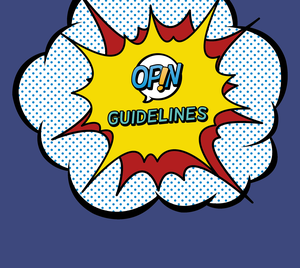Preparation phase
This phase is the first step in realizing the project that you roughly sketched out in the idea phase. The preparation phase is often the most time-consuming one, so make sure to allocate enough time, so you will be able to have everything ready for the participation phase.
Plan your details
In this phase, you should get more into detail. Determine whether you run a short project on OPIN or a longer participation process on OPIN combined with offline events. Choose the OPIN feature that you want to use and make yourself familiar with the OPIN project environment that offers many possibilities, such as giving basic pre-information on the project, uploading offline events‘ results and many more. We advise checking out the OPIN manual and to run a test-project with your team. See here.
Activate young people
You have a good idea, you know your decision-makers and you founded your project. What are you missing? Young People! Sometimes it is hard to get in touch and connect. Try to form partnerships, for example with schools or youth clubs. This will help you to engage with young participants at an early stage.
Listen to our podcast on “Young People: Equal but different!”
Welcome to the DiGY podcast series. In this episode, we talk about how to best integrate young people of different experiences and educational backgrounds in the participation process. Our guest today is Dr. Alicja Pawluczuk, a researcher and very active expert on digital inclusion.
10 Helpful tips you should keep in mind during your preparation phase
- Set up an outstanding project team
The most important thing is not the actual number of team members, but whether the needed competencies are present in the team. More here - Think about the format of your results
Here it is important that you reflect and account for the decision-maker's wishes. Therefore, put some thought into finding solutions to collecting the data in the most structured and useful way. - Ask the right questions in the right setting
Generally seen, there are two types of questions: If you want to gather general information on a topic and get a feeling for the other's overall standpoint, ask open-ended questions. To get specific information, ask closed-ended questions. More here - Choose the right methods to achieve your objectives
We recommend that you combine online features on OPIN and face-to-face components. It is possible to set up a strictly online process, but you generally raise the odds of carrying out a successful youth eParticipation project when face-to-face and online features go hand in hand. More here - Compose a communication strategy to be publicly visible
You have already mapped your main target groups – the young people and the decision-makers – so now you just need to decide on the main messages you want to send to them and how to get these messages across. More here - Provide the young participants with balanced and easily accessible information
The material should describe both pros and cons of different options according to different stakeholders. This is the principle of providing both expertise and counter-expertise to the issues discussed. More here - Take care of practicalities for your face-to-face events
When you have appointed the date for an event, you should book a venue. If it is important that you get a specific venue for your event, let’s say the town hall, it might be easier to ask when it is available and then decide on a date. More here - Prepare online community management
For the participants’ own sake, you have to keep a watchful eye on what the young are posting. You should remove posts that expose personal information or don’t live up to the Code of Conduct. If you decide to remove content, you should - of course - notify the user. More here - Carefully test the eParticipation process before it airs
In a perfect world, both your project team and young representatives should test it and provide their feedback. More here - Privacy and data protection: OPIN is a safe place
Liquid Democracy, which hosts and maintains opin.me complies with European data protection legislation. Additionally, Liquid Democracy in particular complies with the German Federal Data Protection Act (BDSG).
If you want minors to take part in your project, you need their parents’ consent for them to do so. A minor is a young person below the age of 18. More here
All texts and resources on this website have been funded by the European Commission as part of the Erasmus+ project DIGY and are published under the following licence:




